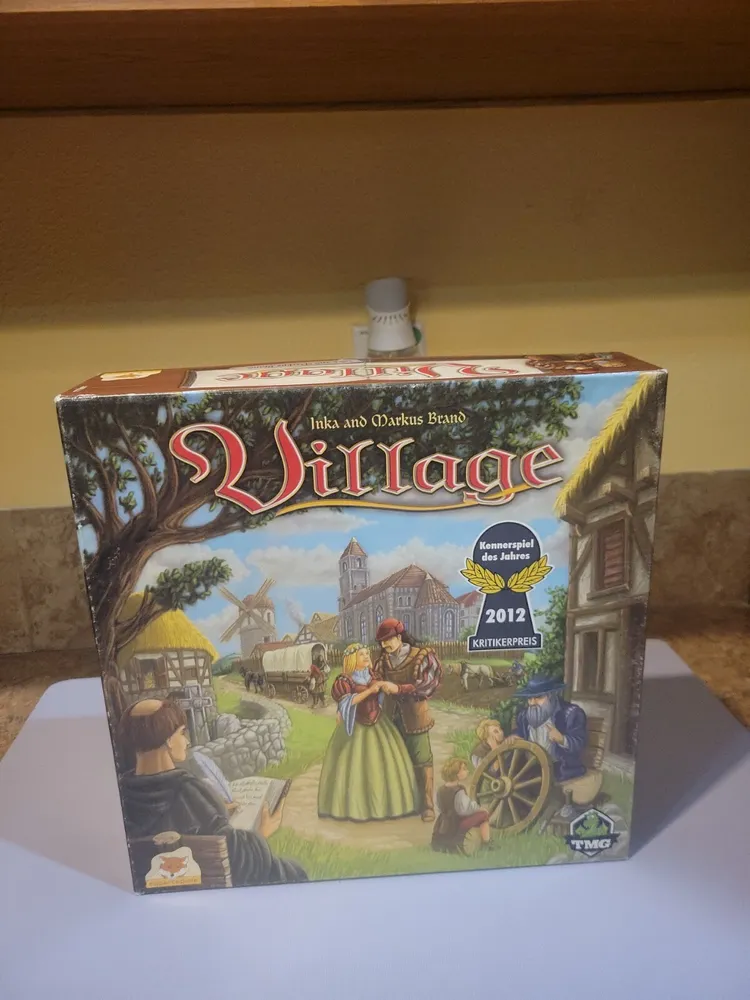Village (2011)
Village
Village is a historical-themed euro-style board game with a focus on resource management for 2-4 players, released in 2011. It is designed by Inka Brand and Markus Brand.
Why is Village Popular?
Village is a popular game due to its unique Gameplay Mechanics of Village and historical theme. It has won several awards and has been positively reviewed by many board game enthusiasts.
Game Components of Village
How To Setup Village
To set up Village, start by placing the main board in the middle of the playing area. Each player selects a family board and places their family members on it. The oldest player becomes the first player and draws a predetermined number of coloured influence cubes and plague cubes, which are then placed into a bag. These cubes are drawn randomly and used to seed the action spaces on the board. In games with fewer than four players, additional family members are used to fill unmarked graves to control the game length.
Gameplay Mechanics and Game Objective
Player Experience
Playing Village is a complex yet engaging experience. The game requires strategic thinking and time management, as players balance various actions to maximize their Prestige Points. The unique mechanism of dealing with death as a natural part of the game adds a layer of strategy, as players must decide when to let older family members pass away to make room for younger ones. The game is not overly confrontational, with competition focused on the allocation of actions rather than direct conflict.
Pros
Cons
Personal Thoughts on Village
Village is a game for those who enjoy deep strategic gameplay and are not deterred by complex rules. It is ideal for players who appreciate managing multiple paths to victory and are comfortable with the theme of mortality. While it may not be the best fit for families with younger children or players seeking a light, casual experience, it is a rewarding game for experienced board game enthusiasts. The addition of a solo mode in the Big Box Edition makes it even more appealing for those who enjoy solo gameplay.
We are supported by our audience. When you purchase through links on our site, we may earn an affiliate commission, at no extra cost for you. Learn more.

